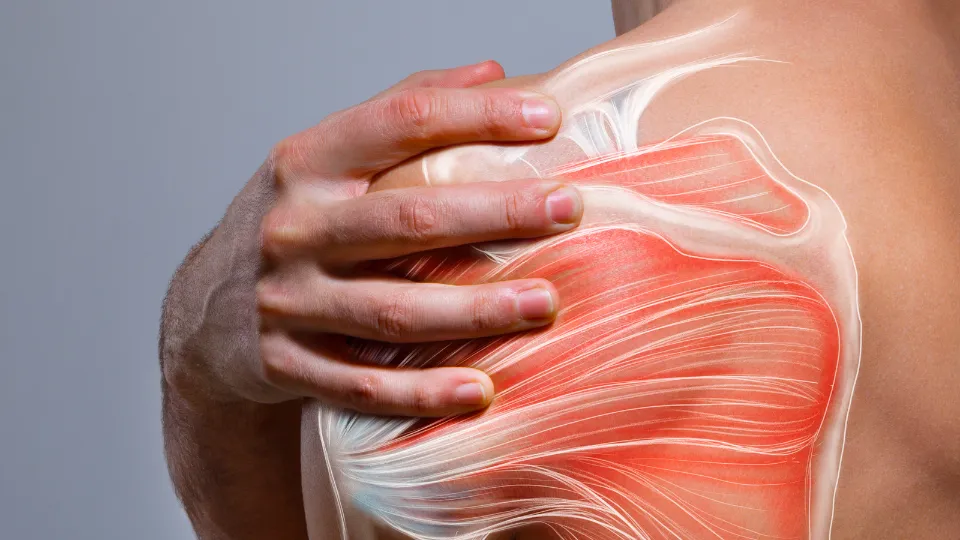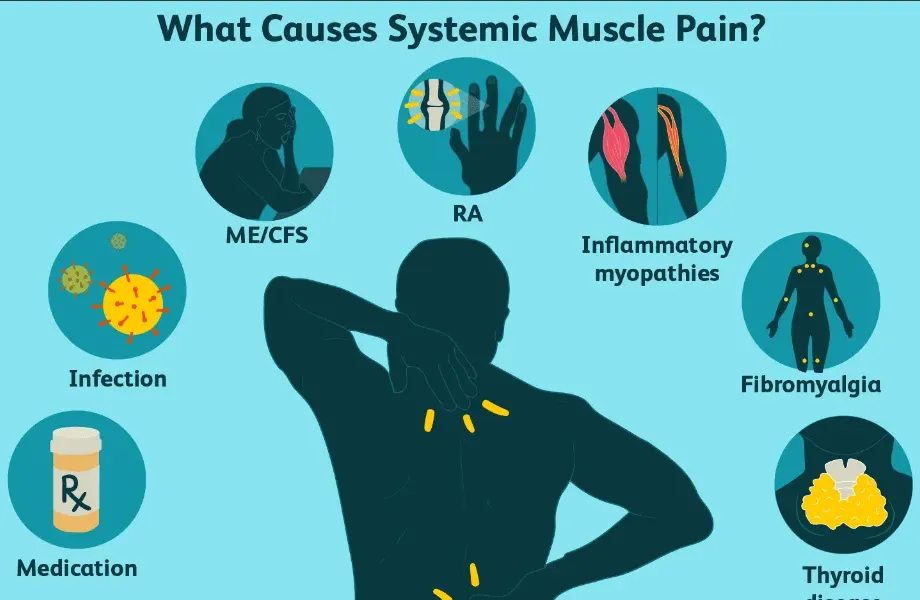It’s never enjoyable to get sick with a cold, virus, or the flu. However, if the symptoms aren’t too severe, sometimes you can continue. Have a sore throat? Gargle. Take a steam shower if you are feeling congested. Take medication to lower fever if you have a mild one. It’s not perfect, but it’s bearable.
However, once you start experiencing all-over aches (which are frequently accompanied by a fever), you might find that you have to stop working pretty quickly. Body aches from an illness typically cause dull pain and discomfort throughout the body, unlike muscle aches that can develop after performing too many squats.
The good news is that you can get some relief from all-over aches and pains while remaining cozy and at home. What you should know is as follows.
Why Do Body Aches Occur When You Are Sick?
While many people associate the flu with signs like fever, vomiting, and nasal congestion, body aches—some of which can be severe—are another typical sign of the illness.
While body aches are a symptom of many illnesses, the flu is most frequently linked to them. However, other illnesses can also cause them. Once a foreign invader (in this case, the flu virus) is detected, the immune system releases chemicals to aid the body in fighting off an infection, which causes body aches. The aches and pains in the muscles that these chemicals cause are an immune reaction.

Even though body aches can be very uncomfortable, they’re actually a good sign because they show that your immune system is working as it should to fend off infection and aid in your quick recovery.
Body aches can result from dehydration in addition to the immune response of the body.
What Makes You More Likely to Get Body Aches When You Are Sick?
While some people experience body aches and pains every time they have the flu, others hardly ever do.
Older adults and people with chronic health conditions such as diabetes and autoimmune diseases tend to have more aches when they have the flu because their bodies have a harder time fighting the infection.4
Because colder temperatures can cause the muscles to tighten up, people who live in colder climates may experience more body aches from the flu than people who reside in warmer areas.
How to Fix Body Aches When You Are Sick?
There are several steps you can take to lessen the pain if you have body aches brought on by the flu or another illness. While these strategies won’t help you recover from the flu more quickly, they can help you to feel better in the meantime.
Stay Hydrated
Dehydration is a contributing factor to the onset of body aches during the flu or other illness, as was previously mentioned. Even when you’re feeling your best, it can be challenging to drink enough fluids, but when you’re sick, you’re more likely to lose fluids due to excessive sweating, vomiting, and diarrhea.
If you’re sick, drink lots of clear liquids like water, tea, sports drinks, broth, tea, and electrolyte drinks to ward off body aches and hasten your recovery.
Try Pain Medication
Using over-the-counter painkillers may help you notice a significant improvement in your aches and pains.
While conventional drugs like acetaminophen, ibuprofen, and naproxen can also help to make you feel more comfortable, homeopathic flu remedies may be able to treat body aches and pains using natural ingredients.
Non-steroidal anti-inflammatory drugs (NSAIDs) can be very effective at treating body aches and pains, but people with certain medical conditions may not be able to take them safely, so make sure you speak with your doctor before using them. Alternative treatments for body aches should be considered by people with kidney issues, bleeding problems, stomach problems, and certain other medical conditions.
Enough Rest
To fight off disease and infection, your body expends a lot of energy. Your body can’t properly carry out many of the immune functions it needs to make you feel better without enough sleep and rest. Rather than trying to “power through” an illness, take time to rest early on so that your body can fight off the infection before it gets worse.

Use of Humidifiers
Dry air causes a number of problems when it comes to exacerbating symptoms of the flu. The flu season typically occurs during the colder months because dry air makes it easier for viruses to spread.
In a typical situation, viruses and other pathogens become enmeshed in the mucus in your nasal passages and respiratory tract, aiding in the prevention of infection. When the air is dry, there is less mucus to catch pathogens, which makes it harder for your body to fight infections.
To increase indoor humidity and boost your mucus production, try using a humidifier or vaporizer. There will be fewer pains and aches as your body fights the virus.
Use Heat
You already understand the soothing effects of heat on achy muscles if you’ve ever used a heating pad on them. By allowing your muscles to unwind and loosen up, taking a warm bath or shower can help with body aches.
However, it’s important to use heat sparingly and use only lukewarm water and temperatures if you have a fever in order to avoid raising your body temperature further.
If you are weak or feel dizzy, avoid using heat or taking a shower because these actions could exacerbate your symptoms. In addition, keep an eye on your kids when they are ill. In order to avoid burns, it’s advised that you try to use heat for no longer than 20 minutes at a time when using heating pads to help with pain relief.
Get a Massage
You might experience relief from body aches through the therapeutic touch of massage if you have a friend or member of your family who is willing to help or if you have access to massage tools, like a percussive therapy gun.
Not only can massage hasten your recovery from an illness, but it can also help sore muscles feel better more quickly. By lowering cortisol levels, a stress hormone that can hinder white blood cell function, massage can help to improve your immune response.
Although the majority of massage therapists won’t treat you if you’re sick, a friend or family member might be able to help by massaging your sore body. Make sure that everyone involved takes safety measures to stop the illness from escalating.
Conclusion
Make an appointment with your primary care physician if you frequently or continuously experience body aches but don’t have a fever or other symptoms. It might indicate a drug reaction or a more serious underlying illness, like an autoimmune disease, which is chronic and debilitating. Make an appointment with your primary care physician if your body aches don’t go away.
FAQs
What Should I Eat When I Have Body Aches?
Numerous foods have been found to lessen inflammation and can help relieve aches, pains, and stiffness. Top anti-inflammatory foods to add into your diet include high quality fish, eggs, leafy green vegetables, fruits, and nuts, seeds, and olive oil.
Is Tylenol Good for Body Aches?
As you may have guessed from the descriptions above, acetaminophen is best used for fever, aches and pains, but will not be very helpful if the pain is due to inflammation. When inflammation is the underlying cause of these symptoms, ibuprofen is more beneficial.



